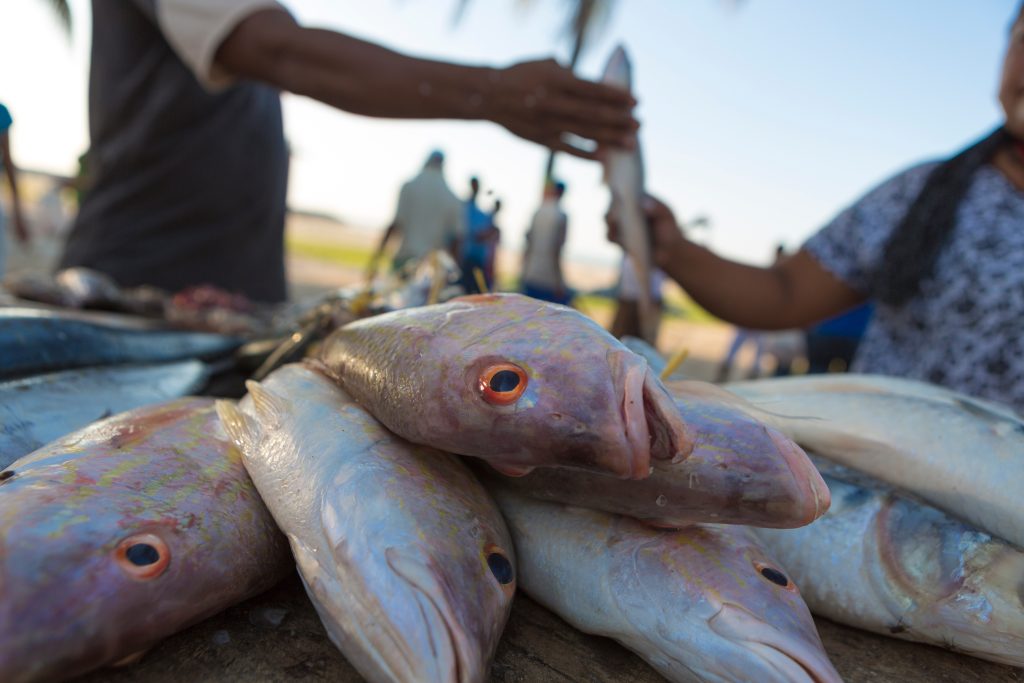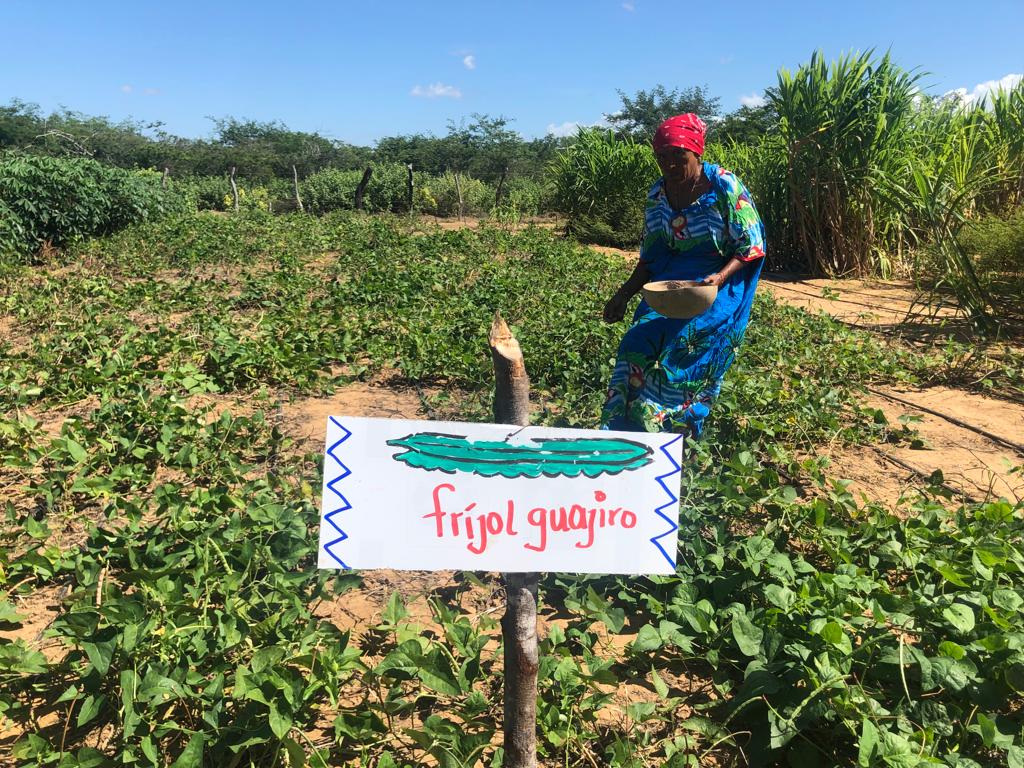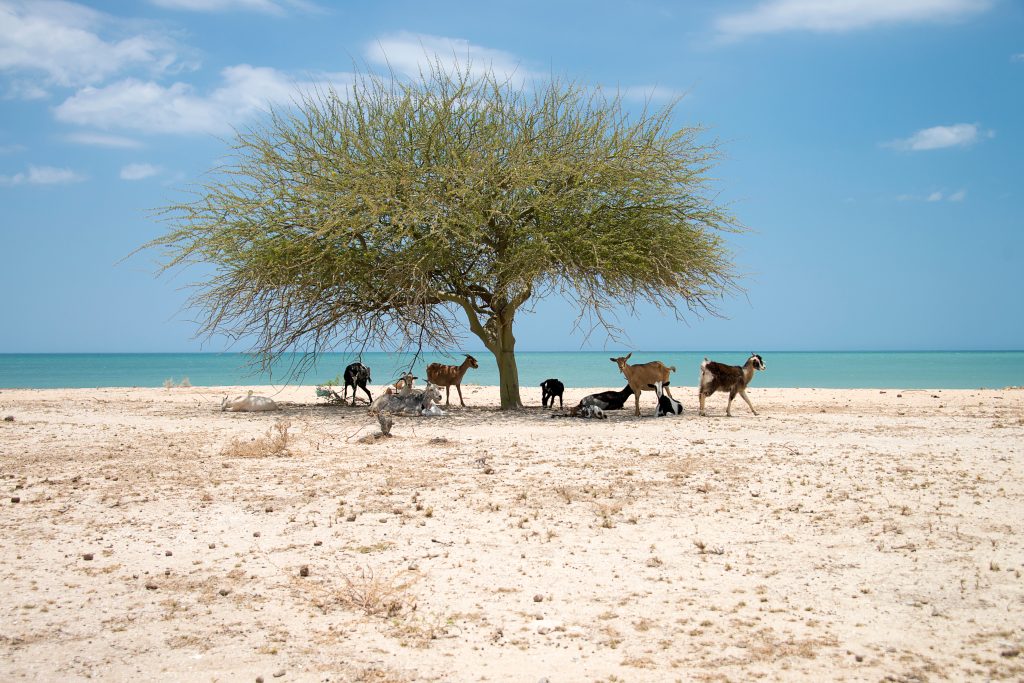
In the arid expanses of Colombia’s La Guajira Peninsula, the Wayuu people have honed agricultural and pastoral practices for generations, balancing traditional techniques with environmental adaptation. Amidst challenges like modern encroachment and climate change, their deep-rooted knowledge of crops, water management, and livestock herding forms the backbone of their subsistence and cultural identity.
The Wayuu people have cultivated a variety of crops that are well-suited to the arid conditions of La Guajira Peninsula, including maize, beans, and yucca. They employ traditional farming techniques such as slash-and-burn, using simple tools like wooden hoes and machetes.
Seasonal cycles play a crucial role in agricultural productivity. The Wayuu have deep knowledge of the rainy and dry seasons, timing their planting and harvesting activities accordingly.
Given the arid climate, water management is critical. One common technique is the construction of jagueyes, small reservoirs designed to capture rainwater. Additionally, the Wayuu practice communal water management, sharing and managing water resources collectively.
Agriculture is not just a means of sustenance for the Wayuu; it is also a cornerstone of their economy and social life. The sale and trade of agricultural products contribute significantly to their financial well-being. Farming is deeply intertwined with cultural rituals and traditions, reinforcing social bonds and cultural identity.

Wayuu farmers face numerous challenges, including prolonged droughts, soil degradation, economic pressures, and the encroachment of modernity.
The Wayuu have a long-standing tradition of pastoralism, primarily herding goats and sheep, which are well-adapted to the harsh conditions. Traditional herding techniques involve deep knowledge of the landscape, seasonal migration patterns, and careful management of grazing resources.
Pastoralism is deeply ingrained in Wayuu society, holding immense economic and cultural significance. Livestock is a primary source of income and a symbol of wealth and status. Herding practices are intertwined with Wayuu identity and customs.
Pastoralism influences Wayuu social structure through hierarchical organization within herding communities, gender roles, and family dynamics.

The Wayuu have created a symbiotic relationship between their agricultural and pastoral practices. Agricultural by-products, such as crop residues, are used as fodder for livestock. In return, livestock manure enriches the soil for crops. This interdependence fosters community and cooperation.
The Wayuu have long recognized the importance of sustainability. They employ sustainable farming practices like crop rotation and intercropping, and sustainable grazing strategies such as rotational grazing. They have also adapted to climate change by developing water-efficient irrigation systems and drought-resistant crop varieties.
Sustainable practices include mulching, natural pest control, rotational grazing, selective breeding, and community initiatives like water reservoir construction and reforestation.
The Wayuu culture faces challenges in maintaining their traditional practices due to globalization, modern agricultural techniques, government policies, land disputes, and environmental degradation.
Efforts to preserve traditional Wayuu practices are essential. These include documentation and dissemination of traditional knowledge, cultural education programs, and community involvement.
Adaptation strategies include developing hybrid agricultural techniques, strengthening community support systems, collaborating with external organizations, and fostering cultural pride.
In summary, the Wayuu face numerous challenges in maintaining their traditional agricultural and pastoral practices. However, through cultural preservation, innovation, and community support, they can navigate these challenges and ensure the continuity of their subsistence economy and cultural identity.
Discover our online store featuring a stunning collection of Wayuu bags. Shop now and embrace the beauty of tradition!